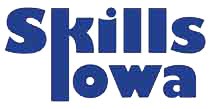1. Clear Purpose-Know why you are conducting the assessment; what do you want to learn from the assessment.
2. Clear Learning Targets-Know what you want to measure; do you want to see if students already have mastery of a skill or are you trying to make a decision of whether to do more instruction on a topic.
3. Sound Assessment Design-Make sure the type of assessment you are giving will measure what you want to know. Not every type of assessment results in the same type of information.
4. Effective Communication of Results-Is the assessor able to get the results of the assessment in time to make the instructional changes necessary, and can he/she share those results with students.
5. Student Involvement in the Assessment Process-Students need to see the results of their assessments as soon as possible and they need to be able to learn from their results with immediate reinforcement.
Skills Iowa's Assessment Center can help you with many of these aspects of your assessment program. All assessments are not created equal. If you cannot break down the results to determine which parts of the test caused your students problems and to find out where they found success, your assessment results in only a grade. Assessment Center's suite of reports allow you to know how a class or a student has done on a single assessment on each skill tested. You can also see how they have done over a series of assessments. Skills Iowa assessments give you the data to make instructional decisions.
